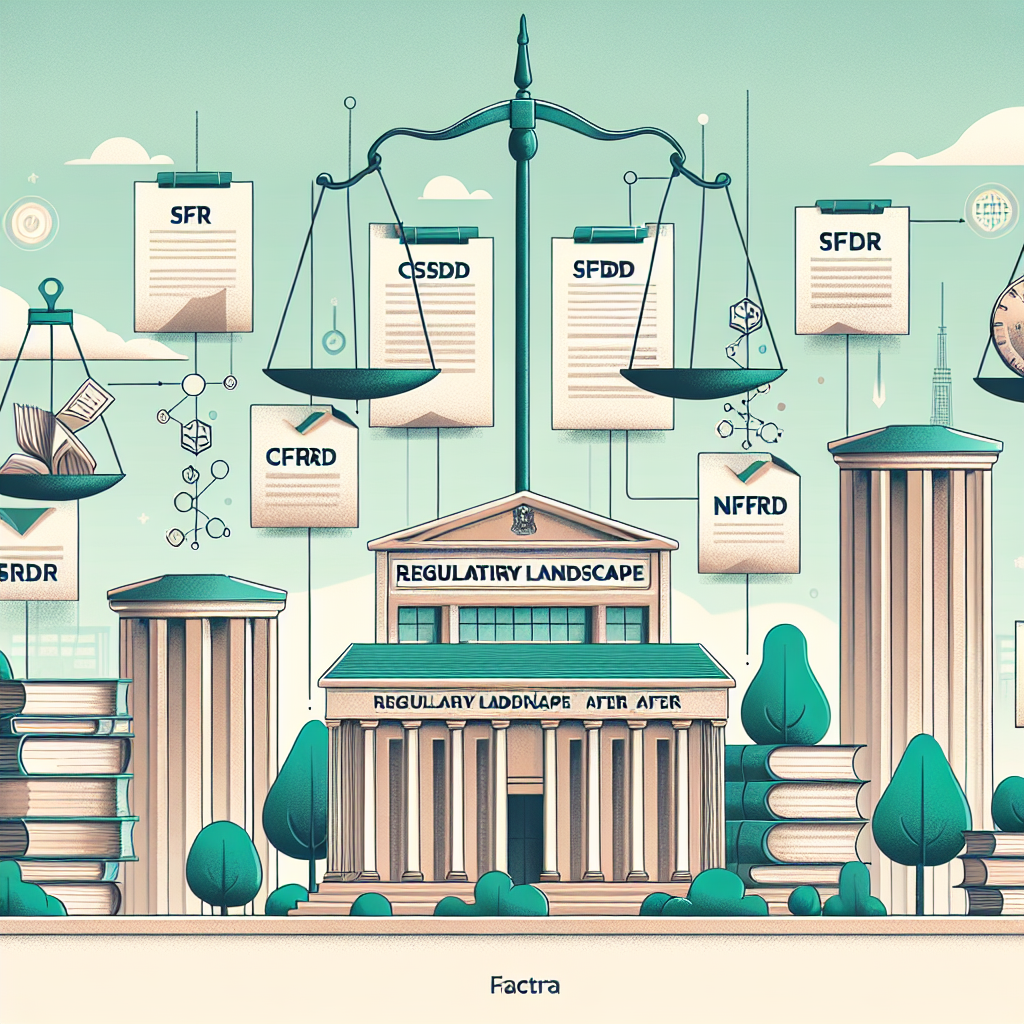Understanding the Regulatory Changes: A Comprehensive Guide to CSRD
The regulatory landscape for financial reporting is constantly evolving, and it is crucial for businesses to stay informed about the latest changes. In recent years, several important regulations have been introduced, including the Corporate Sustainability Reporting Directive (CSRD), the Corporate Sustainability Disclosure Directive (CSDDD), the Sustainable Finance Disclosure Regulation (SFDR), and the Non-Financial Reporting Directive (NFRD). These regulations aim to enhance transparency and accountability in corporate reporting, particularly in relation to sustainability and non-financial information.
The CSRD is a significant development in the regulatory landscape. It expands the scope of reporting requirements for companies, making sustainability reporting mandatory for all large and listed companies in the European Union (EU). This means that companies will need to disclose information on their environmental, social, and governance (ESG) performance, as well as their policies and risks related to sustainability. The CSRD also introduces standardized reporting formats and requirements, which will facilitate comparability and consistency in sustainability reporting across the EU.
The CSDDD complements the CSRD by setting out specific disclosure requirements for companies in relation to sustainability matters. It requires companies to disclose information on their policies, risks, and outcomes related to environmental protection, social responsibility, and employee matters. The CSDDD also introduces reporting requirements for companies in relation to diversity on boards and remuneration policies. These requirements are aimed at promoting transparency and accountability in corporate governance and ensuring that companies take into account the interests of all stakeholders.
The SFDR is another important regulation that focuses on sustainable finance. It requires financial market participants, such as asset managers and investment advisors, to disclose information on how they integrate sustainability risks into their investment decision-making processes. The SFDR also introduces requirements for financial products to be classified as either promoting environmental or social characteristics, or having a sustainable investment objective. This classification will help investors make informed decisions and contribute to the development of sustainable finance in the EU.
The NFRD, which was introduced in 2014, requires large companies to disclose non-financial information, including information on environmental, social, and employee matters, respect for human rights, and anti-corruption and bribery matters. However, the NFRD has been criticized for its lack of harmonization and comparability of non-financial information. As a result, the European Commission has proposed to replace the NFRD with the CSRD, which aims to address these shortcomings and provide a more comprehensive and standardized framework for non-financial reporting.
Overall, the regulatory changes introduced by the CSRD, CSDDD, SFDR, and NFRD represent a significant shift towards greater transparency and accountability in corporate reporting. These regulations aim to ensure that companies disclose relevant and reliable information on their sustainability and non-financial performance, enabling stakeholders to make informed decisions and hold companies accountable for their actions. It is important for businesses to understand and comply with these regulations to stay ahead of the regulatory curve and demonstrate their commitment to sustainability and responsible business practices. By doing so, companies can enhance their reputation, attract investors, and contribute to the transition towards a more sustainable and inclusive economy.




